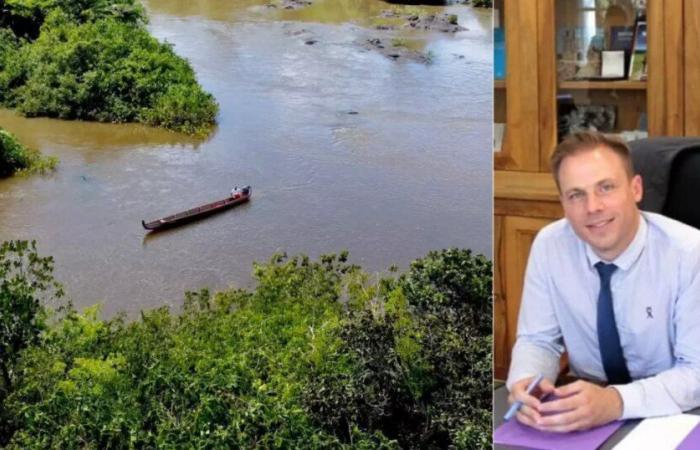Although the drought seems to have passed, its effects continue to be felt, particularly in Haut-Maroni. Although the situation is almost normal on the Oyapock and a clear improvement has been noted between Saint-Laurent du Maroni and Grand-Santi, river transport remains complicated beyond Grand-Santi, towards Maripasoula. Consequence: the Orsec plan, still in force, makes it possible to overcome these difficulties.
Food freight continues by water where possible, while the transport of food and fuel by army air assets remains essential to supply the most isolated areas.
The recent rains, consistent with seasonal standards according to Météo-France, have led to a clear improvement in the Oyapock. So much so that deliveries of food by air, organized by the armed forces, will end there at the end of the week, once stocks have run out. “Indeed, we have very decent rainfall […] and therefore which result in an improvement in the situation on the Oyapock”explained Jérôme Millet, chief of staff of the prefect.
However, the situation remains more delicate on the Maroni, particularly beyond Grand-Santi. River transport remains complicated, requiring the use of air means to transport fuel and essential supplies. This inequality in the improvement of hydrological conditions reflects the diversity of the impacts of drought depending on the area.
Encouraging prospects, but vigilance maintained
The short-term weather forecasts are intended to be reassuring, with the hope that the situation will continue to improve on the Maroni in the coming days. “For the moment, it is really a wet-finger estimate which is based mainly on weather forecasts, but in any case, we hope that within a week, the situation will have improved further”added Jérôme Millet.
Anticipate the next crises
While Guyana is gradually emerging from this crisis, discussions are already underway to better anticipate future episodes of drought. “At the end of the crisis, naturally, we will provide feedback […] to enable the population to face fewer difficulties, particularly in terms of food freight distribution”specified the chief of staff of the prefect. This post-crisis assessment could lead to reinforced measures to respond more effectively to the challenges posed by these climatic phenomena.
In the meantime, the authorities' efforts are continuing to guarantee supplies to the most affected territories, in collaboration with local elected officials and the armed forces.
Damien CHAILLOT






